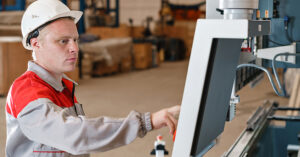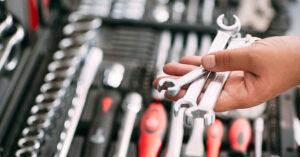For businesses that rely on efficient waste management, compactors are critical assets. They streamline operations, reduce hauling frequency, and improve site cleanliness. However, when these machines break down or operate inefficiently, it can bring production to a halt and lead to increased operational costs. Understanding how to identify and troubleshoot common compactor issues is essential for keeping your facility running smoothly.
This guide will walk you through the most frequent compactor issues, what causes them, how to troubleshoot them, and when to call in expert help.
Understanding Your Compactor System
Types of Industrial Compactors
Before diving into troubleshooting, it’s important to understand the type of compactor you’re using:
- Stationary Compactors – Best for dry waste, these units stay fixed while the container is hauled away.
- Self-Contained Compactors – Ideal for wet waste, the compactor and container are a single unit.
- Vertical Compactors – Space-saving design, often used in retail and commercial applications.
- Pre-Crushers – Heavy-duty compactors that reduce the volume of bulky materials before compaction.
Key Components to Monitor
All compactors rely on a few key systems that need regular inspection and maintenance:
- Hydraulic System – Powers the ram’s movement.
- Electrical Control Panel – Coordinates functions like start/stop and cycle timing.
- Ram/Cylinder – Performs the physical compaction.
- Limit Switches and Sensors – Help control the ram’s motion and safety interlocks.
- Safety Interlocks – Prevent operation when doors or access points are unsecured.
Most Common Compactor Issues and How to Troubleshoot Them
Compactor Won’t Start
Possible Causes:
- Power interruption or blown fuses
- Tripped breakers
- Faulty start switch
- Safety door not fully closed
Troubleshooting Tips:
- Confirm the machine has power and check for tripped breakers.
- Test the start switch for continuity.
- Inspect door safety switches to ensure they’re fully engaged.
- Look for any displayed error codes and reference the manual.
Hydraulic System Failures
Signs of Hydraulic Issues:
- Sluggish or no movement from the ram
- Strange noises during operation
- Visible leaks or low hydraulic fluid levels
Troubleshooting Tips:
- Check fluid levels and top off if low, using manufacturer-recommended hydraulic oil.
- Inspect hoses and fittings for cracks or leaks.
- Clean or replace filters to ensure proper flow.
- Examine pump and motor for wear or damage.
Ram Not Returning to Home Position
Common Reasons:
- Faulty limit switches
- Blockages inside the chamber
- Sticky or worn hydraulic valves
Troubleshooting Tips:
- Test and replace malfunctioning limit switches.
- Clear out compacted debris or foreign objects.
- Check for valve sticking or slow response and repair as needed.
Electrical Malfunctions
Symptoms:
- Inconsistent operation or random resets
- Warning lights blinking or off
- Total control panel failure
Troubleshooting Tips:
- Check wiring for loose connections or corrosion.
- Inspect relays and contactors for damage or overheating.
- Ensure voltage levels are within normal range.
Abnormal Vibrations or Noise
Potential Issues:
- Loose mechanical components
- Worn bearings or bushings
- Debris in the compaction chamber
Troubleshooting Tips:
- Conduct a visual inspection with the unit off.
- Tighten all hardware to spec.
- Lubricate bearings and replace if wear is visible.
- Remove any stuck material that could be causing interference.
Compactor Producing Incomplete or Weak Cycles
Causes to Investigate:
- Insufficient hydraulic pressure
- Entrapped air in the lines
- Misalignment or wear of the ram
Troubleshooting Tips:
- Check and adjust hydraulic pressure if needed.
- Bleed the system to eliminate air pockets.
- Realign the ram and inspect for bent guides or damaged seals.
Preventive Maintenance Strategies
Why Preventive Maintenance Matters
Addressing compactor issues before they escalate is not only cost-effective but also essential for ensuring safe, efficient operation.
Key Maintenance Practices
- Daily: Inspect for leaks, ensure doors are secured, and clean the hopper area.
- Monthly: Check fluid levels, clean control panels, and test limit switches.
- Quarterly: Perform full system checks on hydraulics and electrical systems.
- Annually: Replace worn seals, recalibrate sensors, and conduct a full mechanical inspection.
Routine maintenance also helps you stay compliant with local safety codes and OSHA regulations.
IMPORTANT: Your maintenance team should ALWAYS follow the company’s lockout/tagout policy before working on any equipment.
When to Call a Professional
Some compactor issues go beyond the scope of in-house troubleshooting. Call in a professional if:
- Electrical or hydraulic issues persist after basic troubleshooting
- Structural damage or visible wear compromises operation
- Any safety system is non-functional
- Performance continues to decline despite maintenance efforts
Don’t risk downtime or unsafe working conditions—get expert help to restore performance and ensure compliance.
Partner with Nanoia Recycling Equipment
When compactor issues arise, Nanoia Recycling Equipment is your trusted partner for fast, effective solutions. We offer full-service diagnostics, maintenance programs, retrofits, and emergency repairs tailored to your exact needs.
As a complete recycling equipment provider, we not only install and maintain compactors, but also support you with:
- Expert consultation and system design
- Turnkey installations
- Reliable financing options
- In-stock parts and fast repair dispatch
Don’t let recurring compactor problems slow your operations. Contact us today for a customized solution that keeps your equipment running at peak performance.






